Related Research Articles
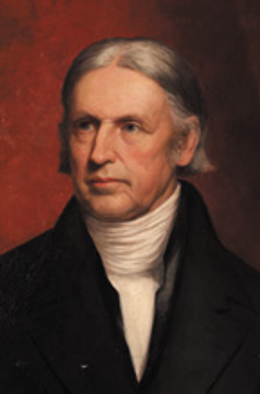
Hosea Ballou D.D. was an American Universalist clergyman and theological writer.
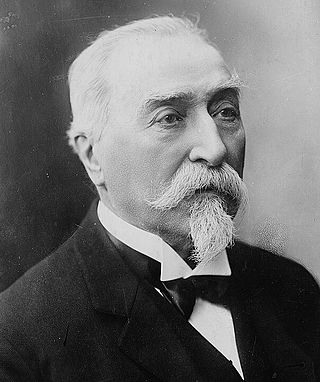
Émile Justin Louis Combes was a French statesman and freemason who led the Lefts Bloc cabinet from June 1902 to January 1905.
Christian socialism is a religious and political philosophy that blends Christianity and socialism, endorsing socialist economics on the basis of the Bible and the teachings of Jesus. Many Christian socialists believe capitalism to be idolatrous and rooted in the sin of greed. Christian socialists identify the cause of social inequality to be the greed that they associate with capitalism. Christian socialism became a major movement in the United Kingdom beginning in the 19th century. The Christian Socialist Movement, known as Christians on the Left since 2013, is one formal group, as well as a faction of the Labour Party.

William Garden Blaikie FRSE was a Scottish minister, writer, biographer, and temperance reformer.
Henry William Crosskey was an English Unitarian minister and geologist.
The United Presbyterian Church (1847–1900) was a Scottish Presbyterian denomination. It was formed in 1847 by the union of the United Secession Church and the Relief Church, and in 1900 merged with the Free Church of Scotland to form the United Free Church of Scotland, which in turn united with the Church of Scotland in 1929. For most of its existence the United Presbyterian Church was the third largest Presbyterian Church in Scotland, and stood on the liberal wing of Scots Presbyterianism. The Church's name was often abbreviated to the initials U.P.
John Brown was a Scottish minister and theologian, known for his exegesis as a preacher.
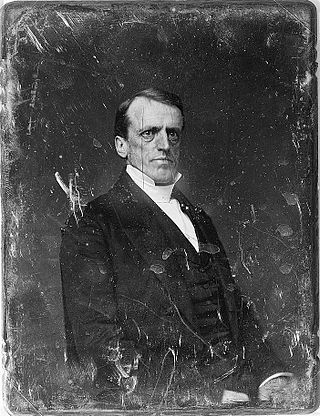
Edwards Amasa Park was an American Congregational theologian.

Austin Phelps, was an American Congregational minister and educator. He was for 10 years President of the Andover Theological Seminary and his writings became standard textbooks for Christian theological education and remain in print today.
The Evangelical Union was a 19th-century religious denomination which originated in the suspension of the Rev. James Morison, minister of a presbyterian United Secession congregation in Kilmarnock, Scotland, for certain views regarding faith, the work of the Holy Spirit in salvation, and the extent of the atonement, which were regarded by the supreme court of his church as anti-Calvinistic and heretical. It professed a creed which allowed them greater freedom as preachers of the Gospel.

Charles Monroe Sheldon was an American Congregationalist minister and a leader of the Social Gospel movement. His novel In His Steps introduced the principle "What would Jesus do?", which articulated an approach to Christian theology that became popular at the turn of the 20th century and enjoyed a revival almost one hundred years later. The stretch of US-24 on the north side of Topeka, Kansas, between US-75 and K-4 is named the "Charles Sheldon Trafficway" in his honor.
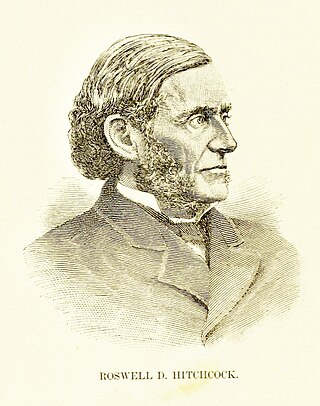
Roswell Dwight Hitchcock was a United States Congregationalist clergyman.
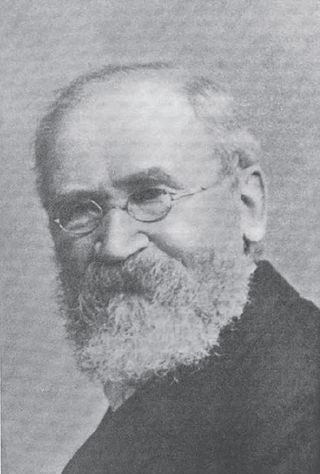
Andrew Martin Fairbairn, FBA was a Scottish theological scholar, born near Edinburgh.
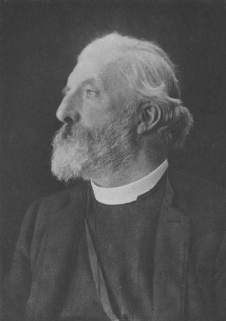
Charles William StubbsDD was an English clergyman.
Dogmatic theology, also called dogmatics, is the part of theology dealing with the theoretical truths of faith concerning God and God's works, especially the official theology recognized by an organized Church body, such as the Roman Catholic Church, Dutch Reformed Church, etc. At times, apologetics or fundamental theology is called "general dogmatic theology", dogmatic theology proper being distinguished from it as "special dogmatic theology". In present-day use, however, apologetics is no longer treated as part of dogmatic theology but has attained the rank of an independent science, being generally regarded as the introduction to and foundation of dogmatic theology.
Church Congress is an annual meeting of members of the Church of England, lay and clerical, to discuss matters religious, moral or social, in which the church is interested. It has no legislative authority, and there is no voting on the questions discussed.

Percy Stickney Grant (1860–1927) was an American Episcopal priest.
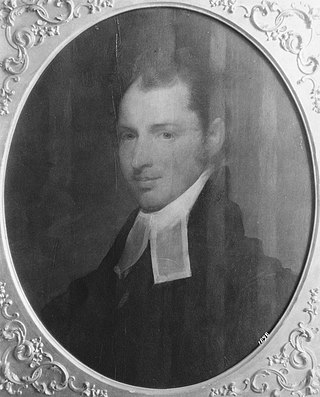
Joseph Tuckerman was a United States clergyman and philanthropist.

Mary Traffarn Whitney was an American minister and editor, as well as a social reformer, philanthropist and lecturer. She was one of the early Universalist women ministers, later changing her association to that of the Unitarian church. Whitney was the author of Honor between men and women (1896), FamilyCulture, the Science of Human Life (1897), Present Tendencies in Racial Improvement (1897), Hymns of Peace (1915), and Problems for seniors by a senior (1932).
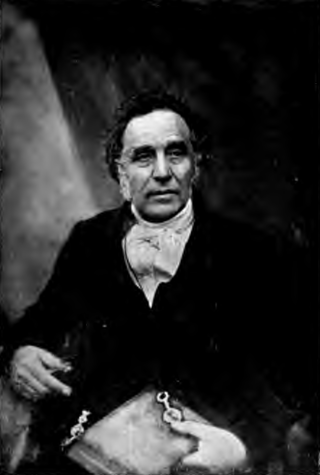
Andrew Symington, was a Scottish minister and teacher. He was ordained in 1809. In 1820 he was appointed professor of theology in the Reformed Presbyterian church.
References
- 1 2 3 4 One or more of the preceding sentences incorporates text from a publication now in the public domain : Chisholm, Hugh, ed. (1911). "Labour Church, The". Encyclopædia Britannica . Vol. 16 (11th ed.). Cambridge University Press. p. 6.
- ↑ Labour Church, Spartacus Education, Retrieved: 9/11/2013
- 1 2 3 4 5 6 7 Johnson, Neil (May 2015). 'So peculiarly its own': the theological socialism of the Labour Church (PhD). University of Birmingham. Retrieved 19 December 2019.
- 1 2 One or more of the preceding sentences incorporates text from a publication now in the public domain : . New International Encyclopedia . 1905.
- ↑ Langmore, Diane. "Turnbull, Archibald (1843–1901)". Australian Dictionary of Biography. Retrieved 19 December 2019.